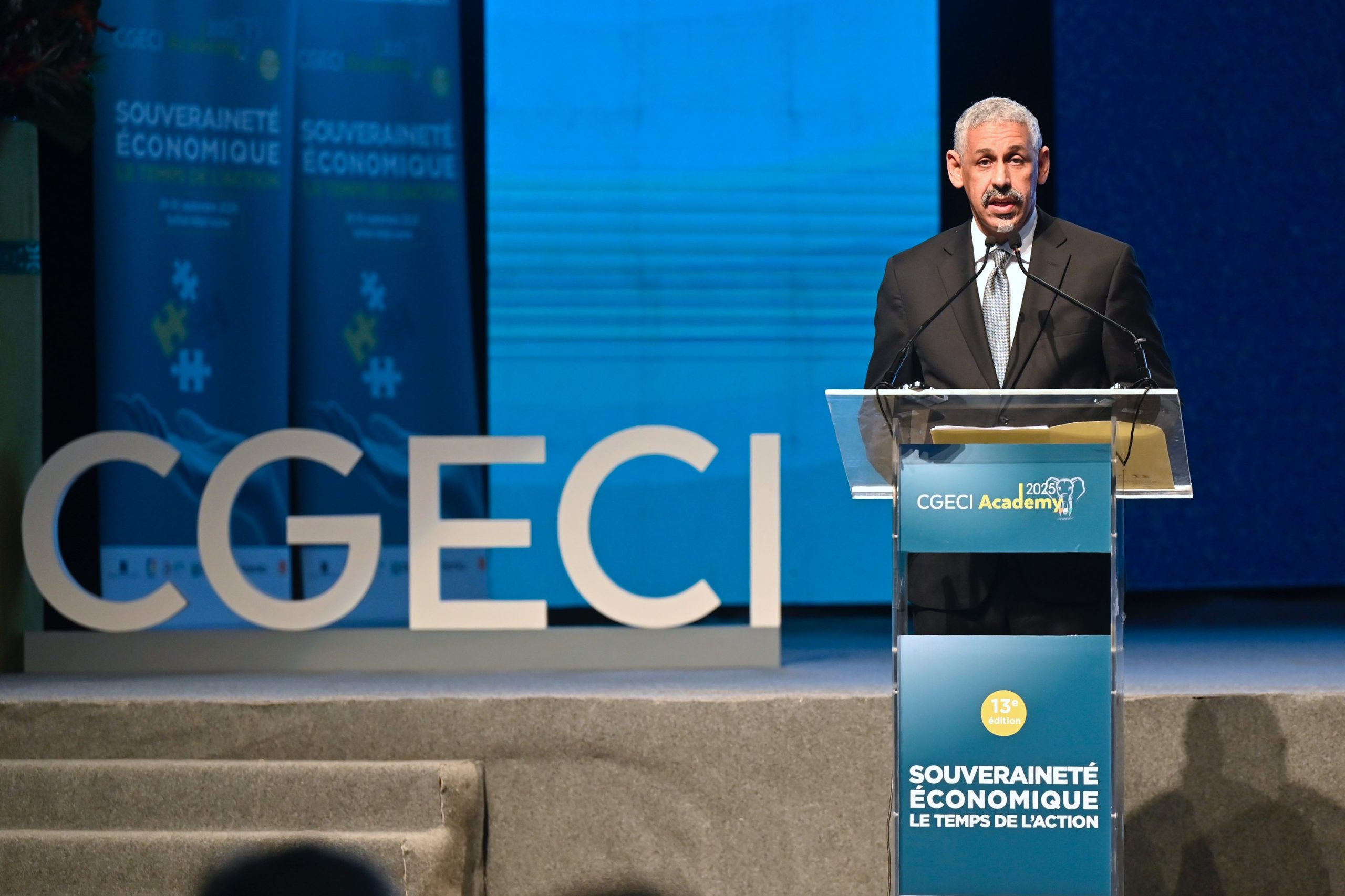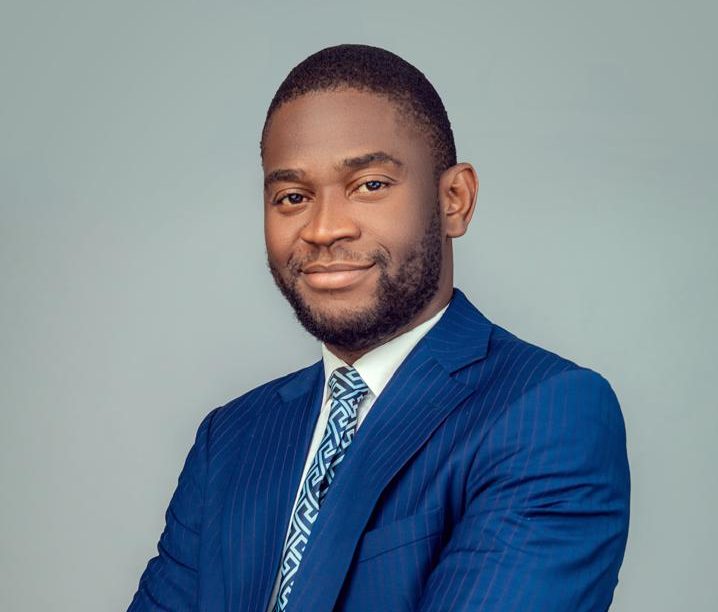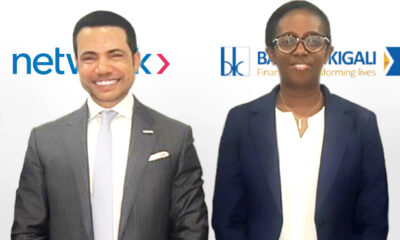Business Home
Startups: Why investing in your online presence is essential for growth

Startups (Image credit: entrepreneur.com)
Ever since we entered the electronic era it has become increasingly part of the global business culture to search for products and services online and make transactions. It’s therefore crucial for any business looking to thrive that a virtual version of the company, particularly for new and small businesses, is accessible on the web.
Establishing an online presence for your business means that your company has 24/7 visibility. It’s also the most innovative way of building your brand, engaging with your existing clients or potential customers, and creating networking opportunities. In addition, being online extends your business’ reach beyond your physical geographical location and allows you to access markets you may not have been able to otherwise.
Furthermore, you can cost-effectively promote your offerings beyond borders and create a demand for your products or services in previously inaccessible markets, giving your business unlimited growth potential.
The importance of establishing your business on the internet
The internet democratises commerce due to its anti-monopoly nature which gives startups or small businesses the opportunity to create far-reaching impressions and the chance to compete with larger and more resourced corporations on an even playing field. However, to gain competitive advantage online is not a matter of simply just creating a generic web page in hopes that customers will come flocking because if that’s the assumption then you’re unfortunately mistaken.

The Digital Economy Survival Toolkit is a book that highlights why being online is important for startups and small businesses. It gives insight into why any business should invest in having an online presence. It also covers the key elements that make a website effective and how to successfully launch a new product and fund a startup.
Knowing what it takes to be successful business on digital platforms is important and every startups should learn why strategic networking is truly the nexus between entrepreneurs and success. In today’s world of remote working, knowing how to use virtual staffing to better your business has become vital. Communicating with customers via webinars and understanding the importance of branding your webinars is also key to successfully launching a profitable online business.
In terms of growing reach and traffic, entrepreneurs need tools that enable them to ensure their businesses have competitive SEO rankings because without brand visibility there’s no way to drive large volumes of traffic to a website. Other crucial aspects that give online entrepreneurs the edge include knowing how to combine email and social media to maximize the impact of marketing campaigns.
So before you introduce your company to the world of internet users, which according to Internet World Stats is roughly just under half of the total global population and set to significantly increase over the coming years, you need to have a clear strategy outlining your objectives as far as what it is you hope to achieve by establishing your company’s presence online.
Setting up your digital real estate
Having a basic web penetration strategy allows you to have an idea of what to expect and to estimate the rate of return for the resources you will invest in setting up your online presence. Most small businesses and startups do not always have access to large budgets which can be allocated to this however, it should be encouraging to know that the prices for building a decent website are fairly reasonable depending on the scope and you can get started by simply:
- Picking a unique domain name and selecting a hosting service package – you can get free web hosts and portfolio sites online but it’s best to have your own domain name which you can personalise for your business.
- Finding a design that best fits your brand – with almost an unlimited number of website designs available, you want to find one that gives your users the best experience and reflects your aesthetic.
Key elements that make a website effective
There are several actions you would need to take in order to give your startup the edge it needs to successfully compete in an extremely competitive world. A good website should incorporate some, if not all, the elements listed below:
Captivating headlines
Every website should clearly communicate your business offering to potential customers from the start. It is therefore important to have simple but impactful headlines. Your headlines and subheadings should describe what your business does in a straightforward manner. Remember, first impressions are everything and if your content is not engaging from the get-go customers will most likely bounce off your site.
Comprehensible value propositions
Once you have briefly outlined what your business offers, the next step is to show your audiences why what you do matters. Here you should focus on showing the benefits or advantages of your products or services by explaining the main features.
Success indicators
Since the internet is inundated with sites promising consumers all kinds of benefits, it is crucial that you show why customers should choose your products or services over the competition by proving how those who have already chosen your business have benefited. This is also an opportunity to gain the trust of any potential customers.
Resources and content
Customers tend to initially visit websites with the intentions to find out more information and not necessarily to make immediate purchases, which is why most startups or businesses are enhancing their offerings by providing potential customers valuable content relevant to their products and services.
Calls-to-action
Ultimately, the purpose of your website is to convert visitors into customers. To do this effectively, it is imperative that you include a call-to-action on your site. For maximum impact you can have one at the top of the webpage and another at the bottom. Good call-to-actions are designed to inspire an immediate response from your audiences with the most popular ones being “call now” or “visit our store today”. You can also use call-to-actions to generate sales leads by including a “find out more” option where website visitors would be prompted to submit some basic personal information such as email addresses in order to access more comprehensive content.
Optimising your website
Creating a compelling website which functions effectively is the next step towards cementing your company’s presence online. In order to achieve this you need to ensure that your newly created website is optimised. This allows your webpages to be easily discoverable in search engines and rank higher in search results, making it easier for potential customers to find you. Search Engine Optimisation (SEO) involves adding valuable content to your site and using keywords to drive organic traffic to your website.
To make your website search engine friendly and for best performance, there are several areas you could focus on including:
Also Read: Meet The Resilient Black Brothers Saving The Planet One Car At A Time
Keywords
These are essentially topical words or phrases that are used for emphasis. They are also words used by search engines to find relevant pages on the web. Startups or businesses should aim to create content around topics pertaining to their business offering which can help them rank higher in search results so that people looking for information related to those keywords have a greater chance of landing on their webpages. Your choice of keywords should help visitors and potential customers understand the purpose of your page.
Content
For your website to gain prominent visibility online you have to create content that is well-written and error free. Producing great content not only helps your website rank higher in search results but also keeps your audiences engaged and establishes you as an authority in your desired sphere of influence on the internet. Above all, make sure you create quality content that gives readers value.
Responsive Design
With more people accessing web content via mobile devices in comparison with desktop computers, it is crucial that you use a responsive or mobile optimised design for your website. Search engines such as Google also recommend responsive design since it makes it much more convenient for visitors to have a single URL. Setting up your website in this way helps web pages load faster because your website will not have to be redirected to another page for a mobile device.
The secret to success for small businesses and startups
Now that you know why it’s important to set up a presence for your business on the internet and understand the importance of online participation, as well as what it takes to have a functional website, you can rest assured that you’re not lagging behind the competition.
The secret to succeeding in the digital era rests simply on knowing how to utilize the web to your company’s advantage. What’s great is that the internet acts as a great resource for finding techniques to enhance your business and because the developments on how best to thrive online are ever evolving, you too have a fair chance of boosting your business prospects and no one can claim to have the upper hand as long as you stay updated on the developments.

For a comprehensive list of descriptive links to free resources, tools, platforms and apps that you need to set up an income generating business on the internet also check out The Digital Entrepreneur Manual.
Author: Heath Muchena
Economy
Africa must seize global trade disruption as ‘historic opportunity,’ leaders tell private sector

Ivorian Prime Minister Robert Mambé and African Development Bank Group President Sidi Ould Tah have urged Africa’s private sector to take centre stage in the continent’s economic transformation, stressing that the current global trade disruptions present an opportunity rather than a threat.
The two leaders were speaking on Monday at the opening of the 13th edition of the CGECI Academy, the flagship annual forum of Côte d’Ivoire’s employers federation, held under the theme “Economic sovereignty: Time for Action.” The two-day event drew senior government officials, business leaders, and representatives of regional employers’ organisations.
Prime Minister Mambé underscored the urgency of moving beyond analysis to action. “The time for self-analysis is over; it’s now time for action!” he reiterated. “We must become aware of our strengths, our weaknesses and our untapped potential, and most importantly, we must establish a synthesis that consolidates our achievements for new prospects that are based on intelligent and dynamic partnerships.”
He stressed that economic sovereignty requires coordinated effort from government, private investors, young entrepreneurs, and consumers.
Dr Ould Tah echoed this call, telling the gathering that Africa must turn the current global trade tensions into a “historic opportunity” to strengthen regional value chains and process more of its abundant raw materials locally.
“For Africa, this is not a threat; it is a historic opportunity to establish a stronger, more integrated and more resilient local economy,” the Bank President said.
Dr Ould Tah, who assumed office on September 1, outlined his four-pillar strategy for Africa’s development: mobilising large-scale capital, reforming Africa’s financial architecture, accelerating the creation of quality jobs, and building climate-resilient infrastructure with green industrialisation.
He emphasised that structural economic transformation cannot be achieved by governments alone. “They will also come from the African private sector, which must be central to the strategy,” the Bank president said, calling on entrepreneurs to innovate and become major players in global markets.
The gathering comes as multilateral trade frameworks face mounting pressure from protectionist policies and geopolitical tensions. African leaders see the moment as critical for the continent to strengthen intra-African commerce and reduce dependence on external markets.
Ahmed Cissé, president of CGECI, pledged the private sector’s support for continental efforts to restore economic and financial sovereignty through institutional partnerships, including “working closely” with the African Development Bank.
The CGECI, which represents nearly 80 percent of Côte d’Ivoire’s private sector companies, has a long-standing partnership with the African Development Bank to boost youth entrepreneurship. Their joint initiative, La finance s’engage (Finance Commits) has mobilised resources for hundreds of Ivorian start-ups since 2016, including a €1.108 million project that has supported 200 young entrepreneurs, nearly a third of them women.
CEO Insights
Crafting Exceptional Training Solutions for Luxury Professionals and Brands: A Chat with David Osadolor

David Osadolor is the lead consultant at DameOasis Consulting and brings more than thirteen (13) years of experience in the luxury retail sector. His career journey has taken him through Switzerland, Dubai, and Germany, where he underwent extensive training and gained mentorship from leading industry figures. Over the years, he has successfully managed prestigious Swiss brands such as Hublot, Tag Heuer, Ulysse Nardin, Bvlgari, and Louis Moinet. His leadership extends beyond business, as he currently serves as the President of the Nigerian Young Professionals Forum, where he continues to inspire growth and innovation. In this exclusive interview with Alaba Ayinuola of Business Africa Online (BAO), David shares valuable insights on how he is empowering luxury professionals and brands through bespoke training programs, and more. Excerpts.
Alaba: Could you briefly tell us about DameOasis Consulting, and what inspired you to start it?
David: With over 13 years of distinguished experience in the luxury industry, spanning fashion, hospitality, interior décor, lifestyle, watches, high jewelry, high-end accessories, as well as premium wine and whiskey, I realized that while Nigeria’s luxury retail space is growing, there remains a significant knowledge and service gap compared to international standards. For me, the inspiration behind DameOasis Consulting stems from a passion to transfer the knowledge I’ve acquired over the years, and to raise the bar for luxury service and client experience in Nigeria.
Our focus is on enriching the professionals who engage directly with clients, whether through products or services, by equipping them with the right skills in luxury sales, customer service, cold calling, pitching, and overall client engagement. When service is elevated, the entire ecosystem benefits, and Nigeria can begin to reflect a true luxury culture.
The name “DameOasis” is also deeply personal. “Dame” combines my name, David, and my wife’s name, Mercy. “Oasis” connotes water, which symbolizes life and renewal. We see ourselves as springing forth something new and vital in Nigeria’s luxury space, the first of its kind dedicated to truly redefining service and experience.
Alaba: How do you define luxury, and what sets your approach apart from others in the industry?
David: Luxury has many definitions, but one of the most profound I encountered during a course with the LVMH group captures it in four dimensions:
- Emotions beyond ownership
- Creativity beyond trend
- Quality beyond aesthetics
- Legacy beyond desire
For me, any true luxury product or service must embody these four qualities. It must be more than a status symbol, it should stir emotions, reflect timeless creativity, go beyond surface beauty, and leave behind a lasting legacy. What sets DameOasis apart is our insistence on these principles. We don’t just talk about selling luxury products; we focus on creating experiences, shaping perceptions, and instilling the mindset required to serve clients at the highest level.
Alaba: What specific challenges do luxury professionals and brands face, and how does your firm address these challenges?
David: The biggest challenge we see in Nigeria’s luxury industry is the gap in service quality. While brands invest heavily in bringing products into the country, the client experience often falls short of global standards. In addition, the word “luxury” has been overused and misapplied, with many businesses claiming the label without truly meeting its requirements.
At DameOasis, we address these gaps by bridging knowledge and skill shortages, helping professionals understand what authentic luxury is and how to deliver it. Our trainings elevate both service and product delivery, ultimately driving customer loyalty and increased revenues for brands.
Another challenge is cultural, many clients still prefer shopping abroad, which drains capital from the local economy. Through our work, we’re fostering a cultural shopping shift by connecting high-net-worth individuals (HNIs) with local professionals and brands, ensuring they can enjoy the same quality of service and authenticity here in Nigeria.
Alaba: How do you tailor your training programs to meet the unique needs of each client?
David: Our approach is highly customized. Luxury is a broad industry, covering fashion, watches, jewelry, hospitality, lifestyle, Real Estates and automobiles, so we always tailor our programs to the specific sub-sector and the client’s needs.
When engaged, we don’t just accept an organization’s brief at face value. We conduct a thorough needs assessment, including speaking to staff, clients, and management. This allows us to pinpoint the real gaps and design training that directly addresses them.
We also balance global best practices with local realities. Having been trained by some of the best in the international space, we adopt global trends but adapt them to suit Nigeria’s dynamic customer culture, ensuring our programs remain both world-class and locally relevant.
Alaba: What topics or areas do your training programs typically cover, and how do you ensure they stay relevant and effective?
David: Our programs cover a wide range of topics, from core luxury sales and customer engagement to leadership, business transformation, and client experience management. Depending on the client’s sub-sector, we include specialized modules such as cold calling, luxury storytelling, clienteling, and emotional intelligence in sales.
To remain relevant, we constantly update our content based on international trends, insights from our global partners, and ongoing research. At the same time, we refine our materials to reflect Nigeria’s unique market dynamics, so participants can apply what they learn directly in their day-to-day roles.
Alaba: How do you measure the effectiveness of your training programs, and what outcomes have you seen?
David: We measure effectiveness through a combination of short-, medium-, and long-term assessments. Immediately after training, participants complete feedback forms, and we provide handbooks to HR teams for continued reinforcement.
Beyond that, we follow up with organizations to monitor how trainees are applying the skills. We also engage CEOs, HR leaders, and most importantly customers. If customers notice improved service and return to repurchase, then we know the training has delivered its intended results. Luxury is about building loyalty, and the ultimate proof of impact is customer satisfaction and brand loyalty.
Alaba: What feedback have you received from clients, and how has it shaped your approach to consulting?
David: Feedback has been overwhelmingly positive, but it has also been instrumental in shaping our evolution. Clients appreciate the practical, hands-on nature of our trainings, as well as the international perspectives we bring.
We actively encourage feedback, not just from trainees, but also from clients, mentors, international partners, and even through online engagements. This feedback helps us innovate in areas such as training delivery, networking sessions, technology use, and follow-up systems. We see ourselves as a learning organization, always adapting to serve better.
Alaba: Lastly, what trends do you see shaping the luxury industry in the coming years, and how will your firm adapt?
David: Globally and locally, several trends are emerging. One is radical transparency, particularly driven by Gen Z consumers, who want to know the full story behind any product they buy.
Another is the growth of the pre-owned luxury market, as ownership models evolve and more people seek to experience luxury in flexible ways. We also anticipate stronger omni-channel experiences, with digital retail growing rapidly while physical boutiques evolve into experiential spaces where customers can immerse themselves in luxury.
Most importantly, the market will increasingly demand authenticity. The line between genuine and fake will become clearer, and only brands and professionals who deliver true value and service will thrive. At DameOasis, we’re preparing our clients for this future by ensuring they are trained to meet international standards, embrace technology, and remain authentic custodians of luxury in Nigeria and Africa.
Business Home
Global Africa Business Initiative’s ‘Unstoppable Africa’ 2025 Puts Africa at the Center of Global Growth

New York’s Times Square became the stage for Africa’s economic ambitions today as heads of state, business leaders, investors, and policymakers gathered for Unstoppable Africa 2025, the flagship forum of the Global Africa Business Initiative (GABI).
The gathering which took place at the Marriott Marquis, in Times Square, marked a decisive shift in the global conversation – from doing business in Africa to doing business with Africa – with energy, critical minerals, healthcare, education, and the creative industries driving a powerful narrative of Africa as the engine of the world’s next wave of growth. The event was held just ahead of the 80th United Nations General Assembly and was hosted by UN Secretary-General António Guterres and H.E. Mahmoud Ali Youssouf, Chairperson of the African Union Commission. CNN’s Larry Madowo and Al Jazeera’s Folly Bah Thibault returned as moderators.
In his opening remarks at Unstoppable Africa 2025, António Guterres, Secretary-General of the United Nations, highlighted Africa’s growing influence at a time of global disruption and opportunity.
“The world meets at a time of turbulence and opportunity, and Africa stands at the centre of that opportunity. Africa is home to the world’s youngest population, has vast energy resources, and extraordinary creativity across sectors -from fintech and agribusiness to fashion and artificial intelligence. Our challenge and responsibility is to turn these extraordinary possibilities into sustainable prosperity, in line with the Sustainable Development Goals, Agenda 2063, and the Pact for the Future.”
Ms. Sanda Ojiambo, Assistant Secretary-General and CEO of the UN Global Compact, added: “The time has come to embrace a new narrative for Africa. This narrative is imperative. We are shifting from doing business in Africa to doing business with Africa. Since our last forum, GABI has maintained momentum by convening alongside several African organizations and continues to do so.”
GABI was formed in 2022 to rebalance the way business is done in Africa. Its focus is on sustainable business aligned with Agenda 2063 and the SDGs. GABI prioritizes several themes: Energy, Trade, Digital Transformation, Food Systems, Education, Health, Fashion & Creative industries, and Sports.
GABI and its partners aim to build a strong, inclusive private sector that derisks economies, attracts investment, creates jobs, and promotes prosperous, sustainable communities across Africa.
One highlight was a closed-door meeting between the UN Secretary-General, Mahmoud Ali Youssouf, H.E. João Lourenço, President of Angola, UN Deputy Secretary-General, Strive Masiyiwa and other African business leaders. Fourteen CEOs and heads of multilateral organizations, representing companies based in 16 African countries with a combined revenue of US$22 billion, called on governments to do more to improve the business environment. They emphasized the need for policies that support industrial growth, regional trade, and long-term investment.
Founder and Executive Chairman, ECONET Global and Cassava Technologies, Strive Masiyiwa said: “Unstoppable Africa has become a powerful platform for African and global leaders, and the world’s biggest companies to engage with Africa.”
Throughout the day, participants highlighted key priorities for Africa’s development, including expanding access to energy, accelerating clean energy adoption, improving healthcare and education, and supporting creative and sports industries.
Reflecting on Africa’s potential, H.E. Mahmoud Ali Youssouf, Chairperson of the African Union Commission, said: “Unstoppable Africa is more than a slogan. It is, first and foremost, a recognition of our potential and a determination to act, to transform the daily lives of African citizens. Building a just, sustainable, and prosperous world will be anchored in shared values, environmental stewardship, and equitable partnerships among governments, international institutions, the private sector, and civil society”.
A trade session explored Africa’s position in a rapidly changing global economy. In light of rising protectionism, tariff disputes, and the weakening of long-standing trade agreements, speakers examined how Africa can adapt to a more fragmented global landscape. World Trade Organization (WTO) Director-General Dr. Ngozi Okonjo-Iweala set the scene in a fireside chat, noting that global companies are seeking to diversify supply chains and that Africa stands out as a destination for growth. She highlighted opportunities in industries such as textiles and oil palm and emphasized that, with over one-third of key mineral reserves, local processing can support green energy supply chains.
H.E. João Lourenço, President of Angola, highlighted the potential of the Lobito Corridor to boost regional trade and industrial growth. He noted that the corridor connects the Atlantic and Indian Oceans, supports a broad economic zone, and can attract private investment to drive production, processing, and exports across Africa.
H.E. Duma Boko, President of Botswana, called for harmonized laws and systems across Africa to facilitate trade. He emphasized the importance of shared investment in infrastructure, including the Lobito Corridor, and urged stronger public-private partnerships, faster approvals, and streamlined processes to enable business growth.
Another session focused on Africa’s growing importance in the global supply of critical minerals essential to the energy transition and digital technologies. Hon. Bogolo Kenewendo, Minister of Minerals and Energy of Botswana, outlined plans to develop local hubs around mines to ensure processing and value addition happen within the country, keeping more economic value in Botswana and strengthening domestic industry.
Mr. Paul Hinks, Chairman and CEO of Symbion Power and HYDRO-LINK, highlighted the strategic importance of rare earths and other critical minerals. He noted global reliance on China for processing and emphasized the growing demand from partners like the United States for alternative, locally processed sources to strengthen supply chain resilience.
Dr. Rajiv Shah, President of the Rockefeller Foundation, highlighted that by the end of the week, 32 nations are expected to sign energy agreements detailing new policies and plans to expand electrification. African leaders also aim to mobilize over $50 billion in affordable finance, supporting Mission 300, the continent-wide goal to accelerate access to reliable power.
An insightful panel on financing Africa’s green industrial future highlighted the importance of local financial leadership in driving the continent’s energy transition. Alain Ebobissé, CEO of Africa50, called for Africans to take the lead in driving the continent’s development while engaging global partners. He emphasized the need for speed and increased investment, noting that African institutional investors manage over US$2 trillion, yet less than 3% is allocated to infrastructure. Increasing this to 5% could significantly close the funding gap.
In the side event, the Africa Business Leaders Coalition (ABLC), convened a round table focused on unlocking trade in Africa. 14 CEOs representing over US$20 billion of annual turnover in Africa, shared candid feedback with the Deputy Chair and Commissioner for Economic Development, African Union Commission, Her Excellency, Selma Malika Haddadi, calling for harmonised regulations across the continent.
Day Two of Unstoppable Africa 2025 will continue with discussions on trade, digital innovation, food systems, and investment opportunities across the continent.
-

 Oil and Gas2 days ago
Oil and Gas2 days agoTotalEnergies, Chevron Push for Faster Permits, Better Seismic Data in Africa
-

 Afripreneur14 hours ago
Afripreneur14 hours agoRevolutionizing Cross-Border Payments in Africa: An Exclusive Interview with Onyinye Olisah
-

 Energy2 days ago
Energy2 days agoUnited States (U.S.) Political Will, African Reforms Signal New Era for Energy Investment

















